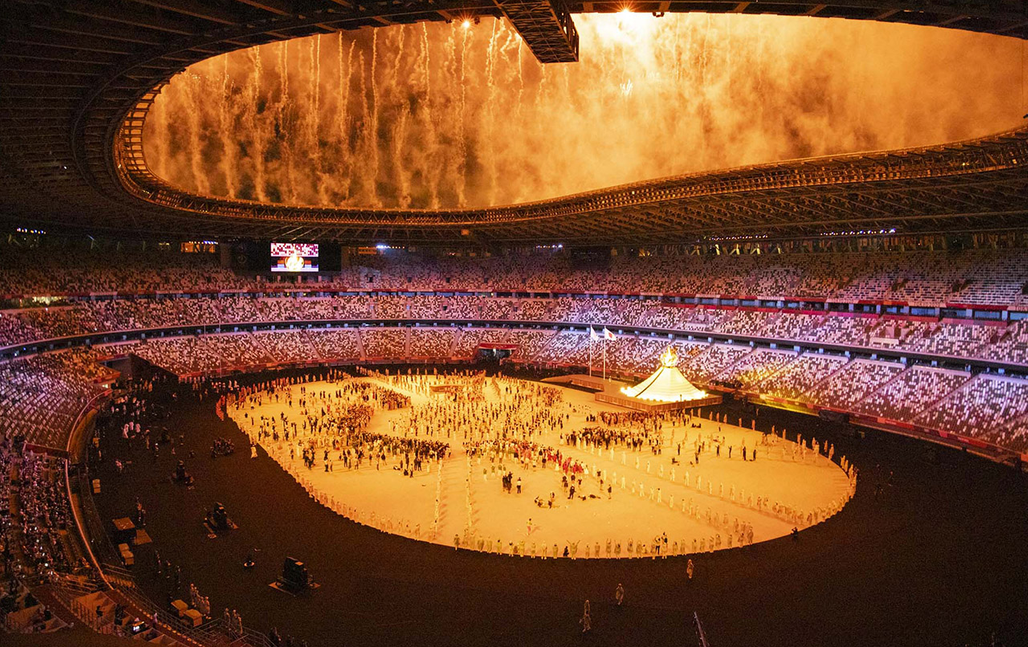
Official Film of the Olympic Games Tokyo 2020 SIDE A : interview with Naomi Kawase

The multi award-winning director Naomi Kawase is presenting her official documentary of the Tokyo 2020 Olympics, Official Film of the Olympic Games Tokyo 2020 SIDE A, in person at Cannes Classics. The film was shot in the middle of the pandemic and posed a real challenge for the Japanese filmmaker.
What interested you in this project?
When I was young, I dreamed of becoming an athlete. Basketball was my sport. I was a forward and the captain of my junior high school team, which eventually went to the national competition. Sport has always been important to me in many ways; it's close to my heart.
So when I was approached by the International Olympic Committee (IOC) to be the official filmmaker for one of the largest global sporting events, I was incredibly honoured. It felt as though my two parallel lives had somehow connected.
“The connection between the world of athletics and filmmaking is a profound one for me.”
How so? What can sport and cinema bring to each other?
Art and sport are similar in so many ways. I was fascinated by the parallels. After all, sport is about storytelling in numbers. Every second in athletics tells a much larger story, as captured by the words of Yiannis Exarchos, CEO of the Olympic Broadcasting Service (OBS) at the end of the film. Filmmaking is also about numbers; there is a numerical aspect to filmmaking, like solving an equation. After all, a film is quite literally made up of a sequence of frames, a sequence of seconds. And it is within that passage of time that we can share a new perspective – that we are opened up to new possibilities. That is where the power of both sport and film lies.
What was your angle on the story of the Tokyo Games?
We started filming back in July 2019. The cameras continued to roll as the Covid-19 pandemic unfolded, through the lockdowns and the year-long postponement of the Olympic Games. We also continued filming long after the Games finished. The result was 750 days and 5,000 hours of footage. Making a film out of that immense collection of material was a Herculean task.
Besides the incredible athletic performances, the most striking elements were the human stories that emerged. Stories like that of brothers Mohamad and Alaa Maso, who despite everything – the trauma of war, a destroyed homeland, and having to find refuge – made their way across seas and continents to compete at their first Olympic Games. For some, like gymnast Oksana Chusovitina, Tokyo was her eighth Olympics, though this time she was competing to try to win a medal for her home country, Uzbekistan. Then there are the stories of the Olympian mums like Kim Gaucher and Aliphine Tuliamuk, balancing motherhood with competing at the highest levels of their sport. I find strength in the tenacity and grace of these stories. Athletics is not just about winning or losing, it is also the human journey of trying, of the striving to become “complete human beings,” as Aliphine Tuliamuk puts it in the film.
What made the biggest impression on you? Was it difficult to film the athletes during the competition?
Filming a global sporting event like the Olympic Games during a global health crisis came with challenges unlike any others in Olympic history. The pandemic protocols put in place during the Games certainly had their challenges when it came to the filming process. However, they revealed aspects of our society which had disappeared from public consciousness.
The stadiums during the Games were empty. The stands were quieter and more subdued. And yet they were filled with so many things: the struggle to find a place in this world, the perpetual balancing act of being a mother and an elite athlete, the fight for voices to be heard. These are things we have all faced in one way or another over these past couple of years.
The dichotomy was striking. And I suppose that humanity was what I tried to capture in this film. That’s the beauty of cinema; it offers us a space of empathy and understanding.
What aspect of Tokyo did you want to show?
What we witnessed that summer, in Tokyo. The unique thing about this project is that it has not just been about making a film. This Olympic Film is about making a record of a time – about capturing the moment – to be preserved for future years. I was very conscious of that in the making of this film. The gaze of young children features throughout. I wonder what they will remember of this time, years from now? In many ways, it is through their eyes that I tried to capture that summer. Film has an interesting way of connecting time: of connecting the past and a time to come. It's like a time machine.


